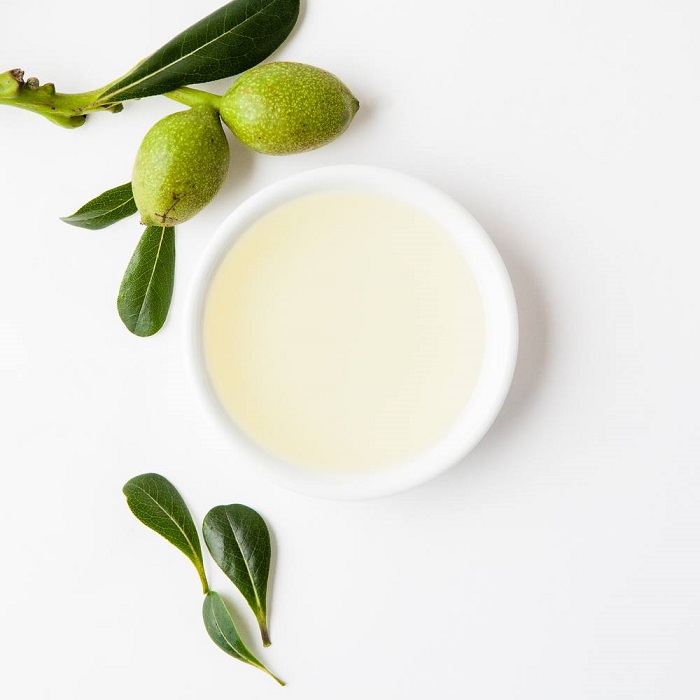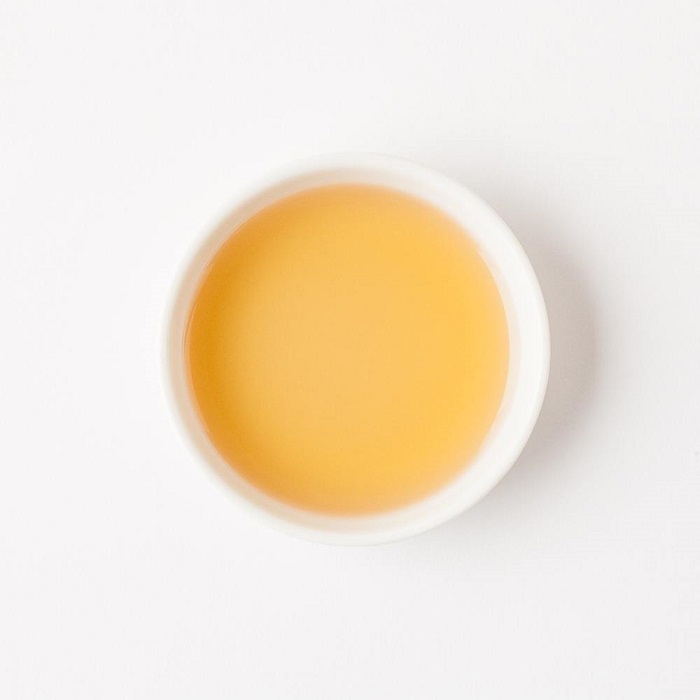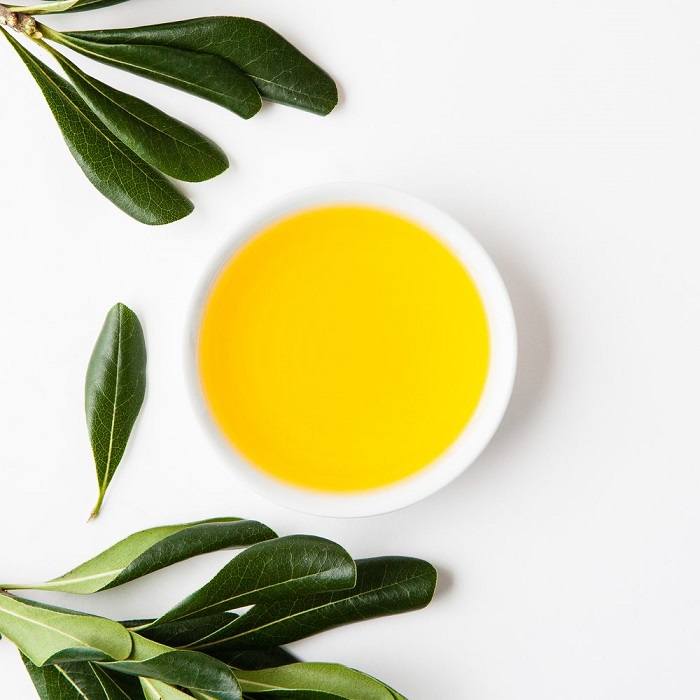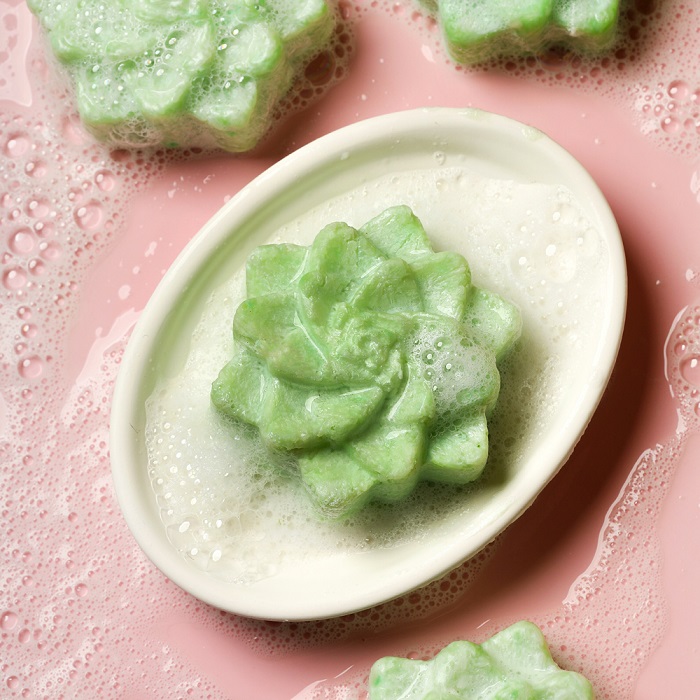If you have fine hair, you probably already know that fine hair has its own challenges. You may have experienced limp, flat hair, frizz, and dryness and damage. Fine hair isn’t bad, though! With the right care, it can be beautifully shiny and silky smooth.
There’s a lot of products that are marketed as great for fine hair, but what should you look for in these products, what other steps can you take to keep your fine hair beautiful, and most importantly, how can you make your own DIY hair care products that are best for your beautiful fine hair?

What is fine hair?
Fine hair refers to hair in which the hair shaft itself is thinner than average. This is not the same as thin hair, which is when there aren’t as many individual hairs on the scalp.
The width of the hair shaft is defined from fine to normal to coarse, whereas the number of individual hairs on the scalp ranges from thin to thick.
So having fine hair is not the same thing as having thin hair.
How do you know if you have fine hair? If you pluck a strand of hair and hold it between your thumb and forefinger, you may not even be able to feel it.
Fine hair is beautiful and tends to be silky soft. But it can be a bit tricky to take care of.
Hair care routine for fine hair
Fine hair tends to look oily more easily than other hair types. This is because the hair shaft tends to be smooth and less porous, so the sebum your scalp produces coats the hair shaft. This can also weigh down your hair, since it tends to have less natural body than coarse hair.
Shampooing daily or every other day is great for fine hair. It helps get rid of that extra oil. Concentrate the shampoo on your scalp and roots, where the oil accumulates first.
Folks with fine hair can (and should!) use conditioner, too. Find a conditioner made with lightweight oils, argan oil and jojoba oil are great examples. Sweet almond oil is also very light. Lighter oils won’t weigh down your silky hair as much. Focus conditioning on the section of hair from midshaft to the ends. These are the parts of your hair that get the least oil and need the additional hydration the most. Conditioning the portion near your scalp may make your hair appear limp and flat.
Using a wide-toothed detangling comb while conditioning your hair helps detangle your hair while reducing breakage, since wide-toothed combs are much gentler.
When your hair is dry, a soft boar bristle brush is great for fine hair. It gently smooths the hair and imparts shine, while pulling natural sebum down along the hair shaft.
In terms of hair masks and other treatments, you’ll want to avoid a lot of heavier, oil-based masks in favor of emulsified masks with clay. Heavy oils can weigh down your hair, and clay actually helps remove excess oil.

Finding products for fine hair
Labeling may state that the product inside is good for fine hair, but we’re going to look at ingredients that you can find on labels that really work well, and some that don’t.
What to look for
When you’re shopping for products for fine hair, you want to avoid anything that’s going to weigh your hair down. You also want to look out for products that contain heavy oils, because these may also make your hair look greasy.
- Lightweight oils - Fine hair can also benefit from using oils in their hair, whether it’s directly or in an emulsified product like a conditioner or leave-in product. Great lightweight oils for fine hair include: argan oil, sweet almond oil, kukui nut oil, and jojoba oil.
- Charcoal and tapioca starch - These ingredients may help fine hair look fuller and thicker, adding body. As a bonus, charcoal may also act as a conditioning agent.
- Panthenol - This ingredient is a form of vitamin B5. Panthenol can help strengthen hair. It helps retain moisture and can improve the texture of your hair, too.
- Protein - Your hair is mostly keratin, which is a protein, so it’s no wonder that adding protein can help strengthen your hair. Hydrolyzed proteins are great, because the protein strands have actually been broken down into amino acids. These bind with the protein in your hair, and may strengthen the hair shaft, and fill in holes and cracks in the strand. We love silk protein for hair (and skin), as well as collagen, but there are also great plant based proteins available, like pea and quinoa proteins.
- Polymers - Polymers coat your hair shaft, and help your hair absorb and keep moisture. The word polymer may sound a little scary, but there are naturally-derived polymers available too. Some of these include starches, gums, and more.
What to avoid
There are ingredients that are perfectly good for hair, but that may not play nicely with very fine hair. These may be ingredients that just weigh down your hair, or they could expose your fine hair to greater risk of damage.
- Heavy oils - Heavy oils can weigh down fine hair or even make it look greasy. Fine hair tends to be less porous than other hair types, so lightweight oils that are easily absorbed are much better.
- Heavy duty conditioners - These may be referred to as “deep conditioning,” and they’re likely to be too much for fine hair. If the ends of your hair are dry, just try treating the ends. This is less likely to make your hair look limp and flat.
- Salt - Because fine hair is so, well, fine, it’s particularly susceptible to ingredients that dry hair out. Salt is one of these ingredients. It’s included in some styling products to add volume and enhance curl, which sounds great for folks with fine hair, but using it too much can cause your hair to become dry and even prone to breakage.
- Alcohols - Alcohols are another ingredient that dries out your hair. Alcohols appear in a lot of styling products like gels and hair sprays because they help the product dry quickly. It’s important to know that fatty alcohols aren’t the same as drying alcohols. They are actually good for your hair.

Other steps you can take to keep fine hair healthy
Keeping your hair healthy and beautiful can be done with more than just hair products. Fine hair has a very narrow hair strand, so we’re always interested in strengthening the hair shaft to prevent breakage, improving hair flexibility and texture, and preventing the hair from drying out. Here are some lifestyle steps you can take to promote healthy hair.
- Eat a diet rich in protein. While adding protein topically does help strengthen fine hair, making sure you eat enough protein is also important. Your skin creates hair using protein, so if you don’t have enough your hair might be more fragile or porous. This can lead to more breakage and dry hair.
- Keep your scalp healthy. Healthy hair starts at the scalp, after all. A dry or irritated scalp can grow hair that’s oddly shaped, or even grow fewer hairs. This means preventing both dry and oily scalp problems. Each of those problems has different solutions, and you can buy (or even better, make) scalp masks and serums to help with both.
- Drink plenty of water. While your hair doesn’t need you to drink enough water to keep it hydrated, your scalp sure does. Skin gets a lot of its moisture from deeper layers of skin, and ultimately, from the water you drink.
- Don’t shampoo too often. While everyone’s hair is different and has unique needs, typically fine hair only needs to be shampooed 2-3 times a week. Excessive shampooing can actually cause your scalp to produce more sebum, which makes your hair more likely to look greasy.
- Limit heat exposure. This applies to both blow drying and heat styling. Typically, folks with fine hair will want to let their hair air dry to about 75%, detangle, and then blow dry if desired. If you’re using heated styling tools, choose ones that have a low heat setting, and limit your use. You can also use rollers to promote curl and volume.
- Brush your hair daily. Fine hair can be prone to tangling, and tangled hair is more likely to experience damage and breakage. Fine hair does well with soft, flexible bristles, like boar bristle. Brushing your hair detangles, adds shine, and can help make your hair more manageable, but it also helps to move sebum from the root down the hair shaft. This means more protection through the midlength of your hair and less sebum at the root.

How to create DIY products for fine hair
Fine hair needs specialized care, and making your own DIY hair products is a great way to get that. DIY products are also sometimes less expensive than high end and custom hair products. Let’s look at some of the things you can create.
- Shampoo: Making your own shampoo can be tricky; you have to balance a lot of factors, like the mix of surfactants, the pH of the product, and conditioning ingredients. You can do it, though, and the results are worth it. We have a great Aloe Shampoo Bar Project to get you started. After you’ve got the hang of making them, you can start customizing them to your own unique needs.
- Conditioner: DIY conditioner is a lot like DIY lotion; it’s an emulsion of oil-based and water-based ingredients, held together with an emulsifier. The oils you use act as emollients, and you can easily include humectants and other conditioning ingredients. BTMS - 50 is a great emulsifier to use in conditioner because it also has conditioning properties. Panthenol is a great addition, too. And Liquid Silk can help strengthen your strands. We offer a great organic hair conditioner base that’s ready to be customized, too.
- Styling products: It might surprise you to know that you have a few options for making styling products. For fine hair, you want to focus on water-based products and try to avoid alcohol as a component. From a simple sea salt spray to gel to a pomade-like balm, there are tons of options.
So there you have it, the basics of caring for your beautiful fine hair. Remember, your hair can be fine and thick at the same time; having fine hair doesn’t mean your hair is thin. Keeping your hair healthy is the best way to make sure it stays beautiful. DIY hair products are a great way to make sure your hair is getting what it needs most.

